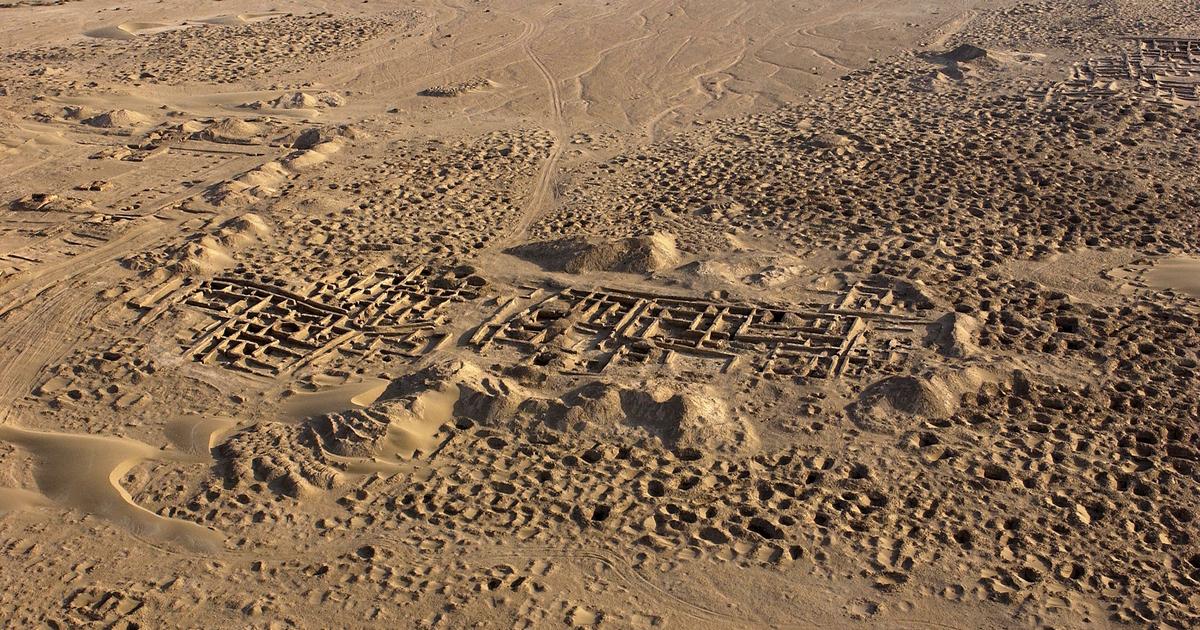Ill-informed tourists or very sober looters?
Two Europeans were arrested on March 20 at Baghdad airport as they were preparing to return to the Old Continent.
In their luggage, cultural goods collected on several millenary sites.
Not cuneiform tablets, a few leonine sculptures or other precious remains from Sumer or Babylon, but a few dozen pottery fragments.
It is little, but enough to justify a passage in front of the Iraqi justice.
And, perhaps, make future visitors aware of the need to protect historic sites with a hot iron.
To discover
Discover the “Best of the Goncourt Prize” collection
Read alsoExceptional discovery of two Iron Age boxer torsos in Sardinia
The trial is intended to be exemplary.
Dating from 2002, the laws on heritage and antiquities provide for severe penalties, up to the death penalty, for anyone found guilty
"of having intentionally removed or attempted to remove an antiquity from Iraq",
a recalled on Sunday, during the first hearing, the judge of the Baghdad criminal court in charge of the case.
At the bar, the two defendants pleaded good faith.
The two tourists, a 66-year-old Briton and a 60-year-old German, had arrived in Iraq on the occasion of an organized trip.
Respectively retired geologist and psychologist, the two individuals met during their journey, and during their excursions on the historical sites of the country.
"About ten"
stones and shards of pottery were discovered by the customs service in the Briton's suitcase;
two other ancient vestiges had been entrusted to the German.
Plundered Memories
“I didn't know it was illegal to collect these pieces
,” pleaded James Fitton, the British tourist, who challenged the villainous nature of his collection of these souvenirs which litter the arid ground of the sites visited.
“I am a retired geologist, I am interested in geology, ancient history and archeology”
, he justified himself.
The German defendant, Volkar Waldmann, also pointed out to the Iraqi justice that the various pieces had been wrapped in a
"transparent bag",
without the slightest intention of dissimulation.
Either an approach that would hardly befit experienced traffickers.
The suitcases of a third suspect, the director of the travel agency, also contained several remains.
The 85-year-old, however, died of a stroke in Baghdad at the end of April.
After reading the statement of witnesses and customs officers, the trial was adjourned to May 22, noted an AFP correspondent.
Read alsoIn the cave of Polyphemus, “the marble odyssey”
Located in the heart of the Fertile Crescent, Iraq is crossed by a multitude of historical sites which have seen the development of writing, agriculture and the first cities.
This ancient manna fueled numerous lootings as well as an abundant traffic in antiquities from the fall of Saddam Hussein's regime following the American invasion of 2003, then during the rise of Daesh.
However, in recent years the country has increased its efforts to recover, enhance and retain its cultural heritage.
In July 2021, the United States decided to return some 17,000 antiquities looted in the chaos of the invasion and then of the post-war period.
The National Museum of Baghdad, the beating heart of the Iraqi archaeological collections, also reopened its doors two months ago,
Beyond institutional actors and the fight against organized antiquity trafficking networks, the preservation of Iraq's ancient heritage also involves raising awareness among tourists.
In search of an authentic souvenir, visitors are tempted to collect some of the countless fragments that dot the country.
A seemingly innocuous action but which, repeated from place to place by thousands of people, turns out to be just as harmful for the integrity of the spaces visited.
The problem is shared by a large part of the archaeological sites.
He is particularly well known in Pompeii.
In 2018, a Montpellier couple was given a four-month suspended prison sentence and a fine of 200 euros for filling a backpack with thirteen fragments of terracotta and
a piece of marble harvested in the ancient Italian city.
Tile shard or marble statue, same fight.






/cloudfront-eu-central-1.images.arcpublishing.com/prisa/W7IQF4C7SNGWPISPIMSYTSYPBU.jpg)








